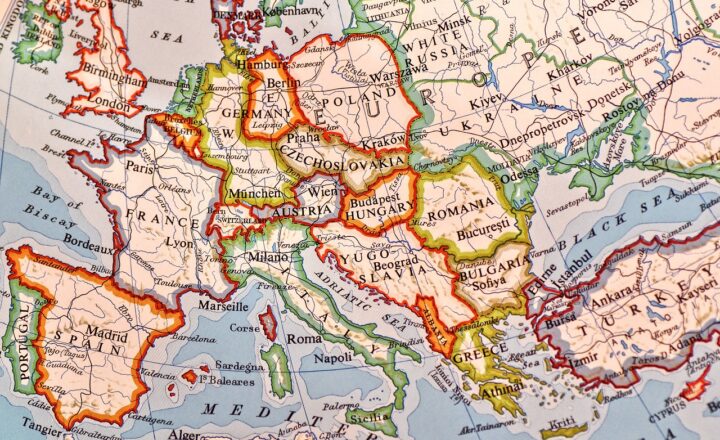
Colonialism, a historical phenomenon that has shaped the modern world, represents a period characterized by the domination of one country over another, often through force, exploitation, and cultural imposition. Its effects have persisted long past the formal dismantling of empires, leaving scars in the cultural, social, and economic fabric of colonized nations. This comprehensive exploration seeks to uncover the complexities of colonialism, its historical context, and its lingering impacts on the world today.
1. Defining Colonialism
Colonialism can be defined as the practice of acquiring and maintaining political control over another nation, often by settling its population and exploiting the resources for the benefit of the colonizing country. The motivations behind colonialism are varied, including economic gain, territorial expansion, national prestige, and the perceived need to civilize so-called ‘backward’ societies.
Key features of colonialism include:
- Exploitation of Resources: Colonizing powers would extract raw materials from the colonies, often at an unsustainable rate, to fuel their own industrial growth.
- Cultural Assimilation: Colonizers often attempted to impose their own cultures, languages, and religions on indigenous populations, leading to the erosion of local customs and identities.
- Political Dominance: Colonial governments typically replaced or subjugated existing political structures, often enforcing laws that benefited the colonizers while disenfranchising local populations.
The colonial experience varied greatly depending on the colonized society and the goals of the colonizers, yet the overarching themes of oppression and exploitation remain constant.
2. Historical Context: The Rise of Colonial Powers
The age of colonial expansion began in the 15th century, with European powers like Spain and Portugal leading the charge. The quest for new trade routes and resources sparked a race among European nations, resulting in the establishment of empires that spanned across continents.
Significant phases in colonialism include:
- The Age of Discovery (15th – 17th Century): The exploration led to the establishment of trade networks and colonies in the Americas, Africa, and Asia. Prominent figures such as Christopher Columbus and Vasco da Gama played key roles in these explorations, albeit at the cost of indigenous populations.
- The Scramble for Africa (Late 19th Century): European powers like Britain, France, and Germany divided the African continent among themselves with little regard for existing ethnic and political boundaries, leading to arbitrary nation-states that persist today.
- Decolonization (20th Century): Following World War II, many colonies gained independence due to rising nationalist movements. However, the legacies of colonialism have continued to affect these new nations politically and economically, a phenomenon known as neocolonialism.
The historical context of colonialism is critical to understanding its lasting impact on global relations and local identities.
3. The Human Cost of Colonialism
The impact of colonialism on human lives was profound and devastating. Millions suffered due to forced labor, displacement, and violence. Significant examples include:
- The Transatlantic Slave Trade: This horrific trade saw millions of Africans forcibly taken from their homes and subjected to brutal conditions on plantations in the Americas. The social and psychological impacts of this trade are felt deeply in African diaspora communities today.
- Indigenous Genocide: In what is now the United States, millions of Native Americans were killed or displaced due to colonization efforts, drastically altering their cultures and societies.
- Forced Assimilation Policies: In places like Australia and Canada, indigenous populations faced systematic efforts to erase their cultures through policies that removed children from their families and placed them in boarding schools.
The lasting trauma from colonial practices is evident in ongoing social inequalities, cultural dislocation, and intergenerational trauma among affected populations.
4. Economic Legacy of Colonialism
The economic consequences of colonialism are profound and multifaceted. After colonization, many countries found themselves stripped of their resources, with economies that catered predominantly to the needs of the colonizers. Factors contributing to the economic legacy include:
- Extractive Economies: Colonized regions were often structured to extract raw materials while inhibiting local industry. This led to economies that were dependent on a few commodity exports, making them vulnerable to global market fluctuations.
- Inequalities in Wealth Distribution: The wealth generated through colonial exploitation often concentrated in the hands of a few elites, with local populations remaining impoverished and excluded from economic benefits.
- Structural Challenges in Development: Many post-colonial states continue to struggle with weak governance systems and inadequate infrastructure, limiting their ability to develop sustainably and equitably.
Understanding the economic ramifications of colonialism helps to explain contemporary global inequality and challenges faced by many developing nations today.
5. Cultural Impacts: The Erosion of Identities
One of the most enduring legacies of colonialism is the cultural impacts it has had on colonized societies. The push for assimilation often led to the erosion of indigenous cultures, languages, and traditions. Major cultural repercussions include:
- Loss of Language and Tradition: Many indigenous languages and practices have been lost or diminished due to imposed colonial languages and norms. This loss contributes to a cultural homogenization where local identities are overshadowed.
- Cultural Appropriation: In modern contexts, indigenous elements are often appropriated or commodified by those outside the culture, stripping them of their original significance while profiting from their cultural heritage.
- Neo-Colonialism entrenched through Globalization: The spread of Western culture through media and consumerism continues the colonial legacy, often promoting values that undermine local traditions and identities.
The cultural dislocation and the ongoing struggle to reclaim lost identities highlight the profound effects of colonial legacies in contemporary societies.
6. Conclusion: Acknowledging the Past for a Better Future
To fully grasp the implications of colonialism, it is crucial to acknowledge the historical injustices and their lasting impacts today. Social scientists and historians emphasize the importance of reconnecting with indigenous identities and healing historical traumas.
Moving forward, conversations around reparations, the celebration of indigenous cultures, and the reclamation of narratives must be prioritized. Efforts to bridge understanding between previously colonized and colonizers play a vital role in addressing ongoing disparities and injustices.
As we navigate the complexities of our interconnected world, understanding colonial history serves as an essential step toward fostering inclusivity, social justice, and more equitable global relationships.
By recognizing the painful legacies of the past, we can collectively work toward a future that values diversity, respects cultural identities, and promotes healing and reconciliation.






